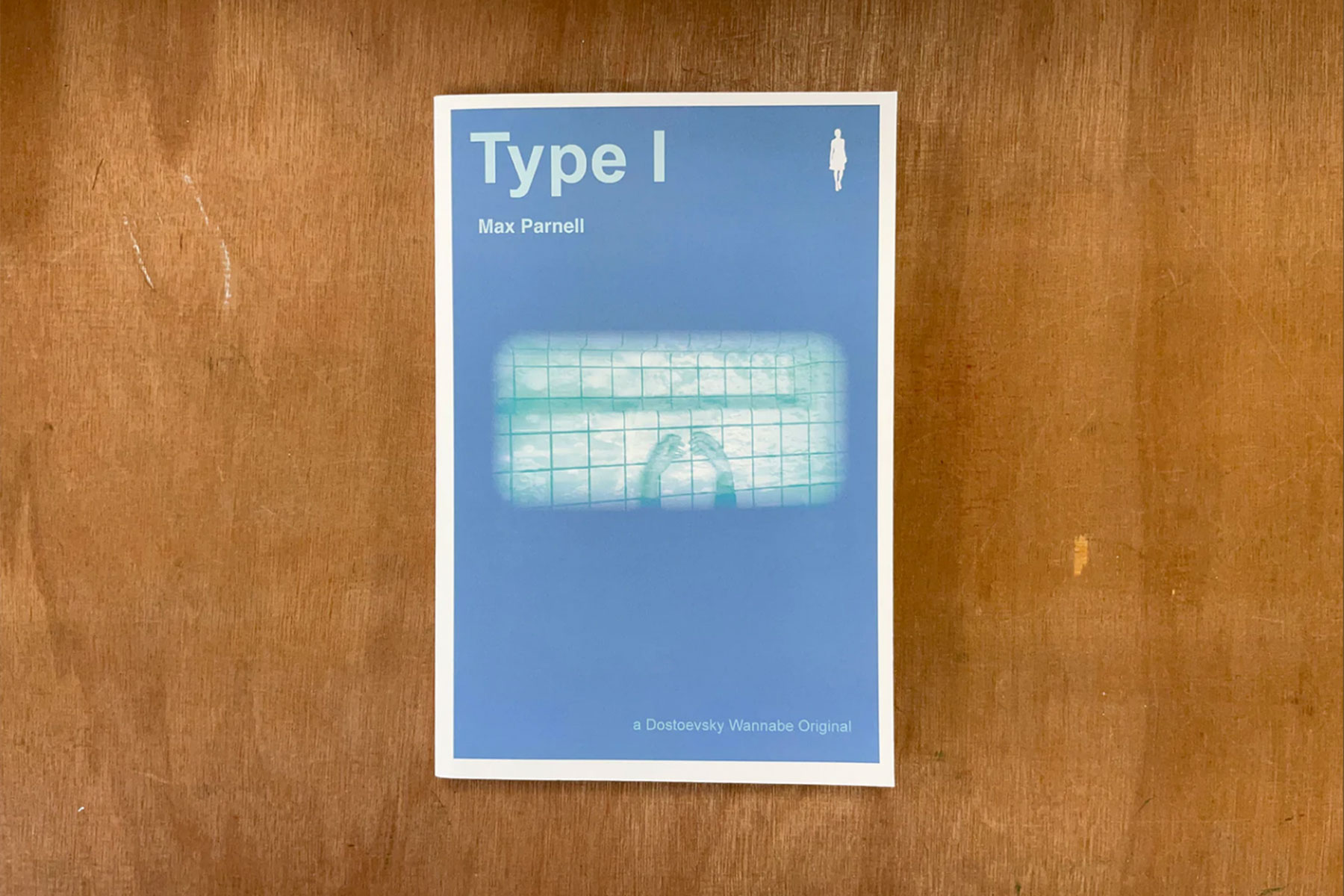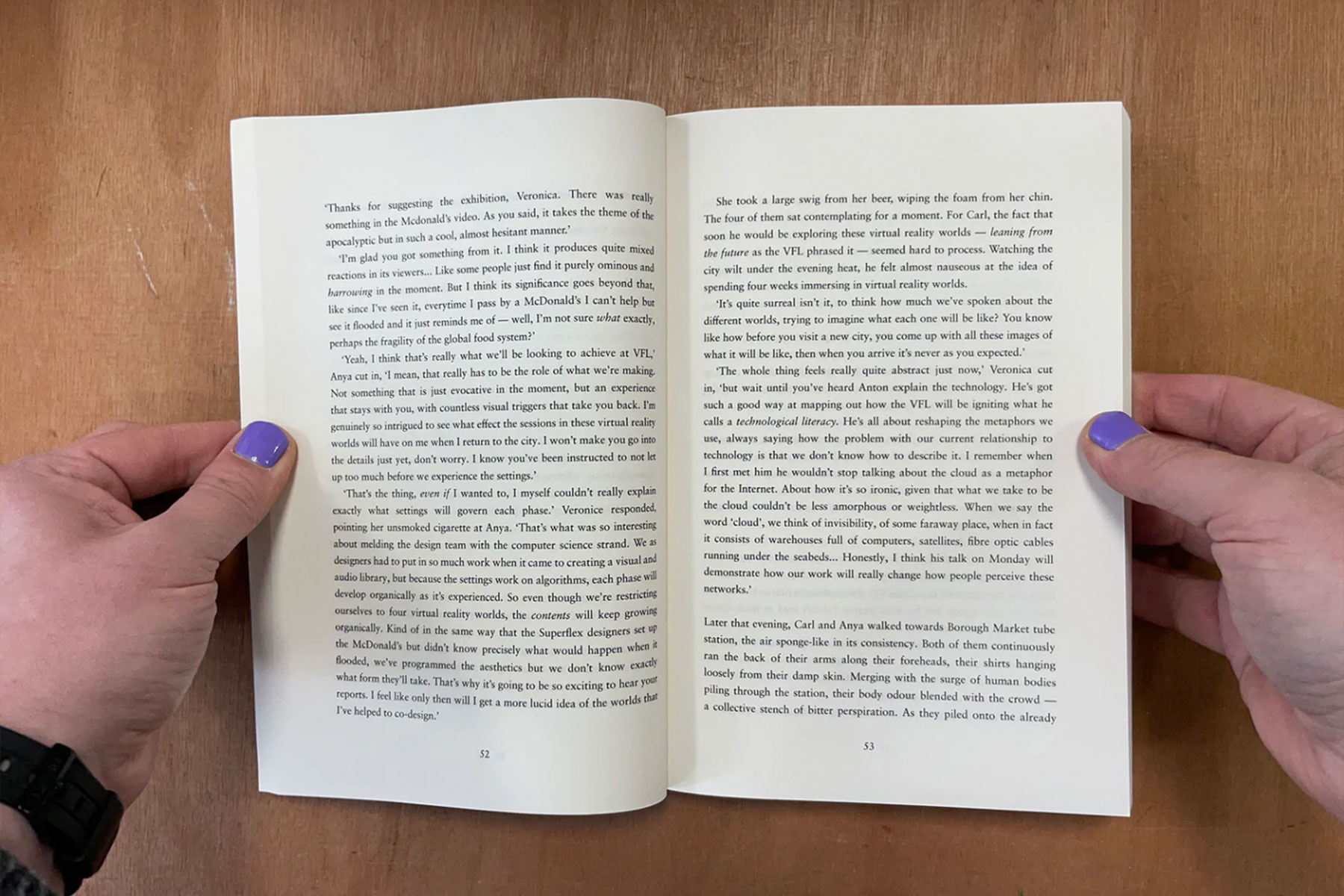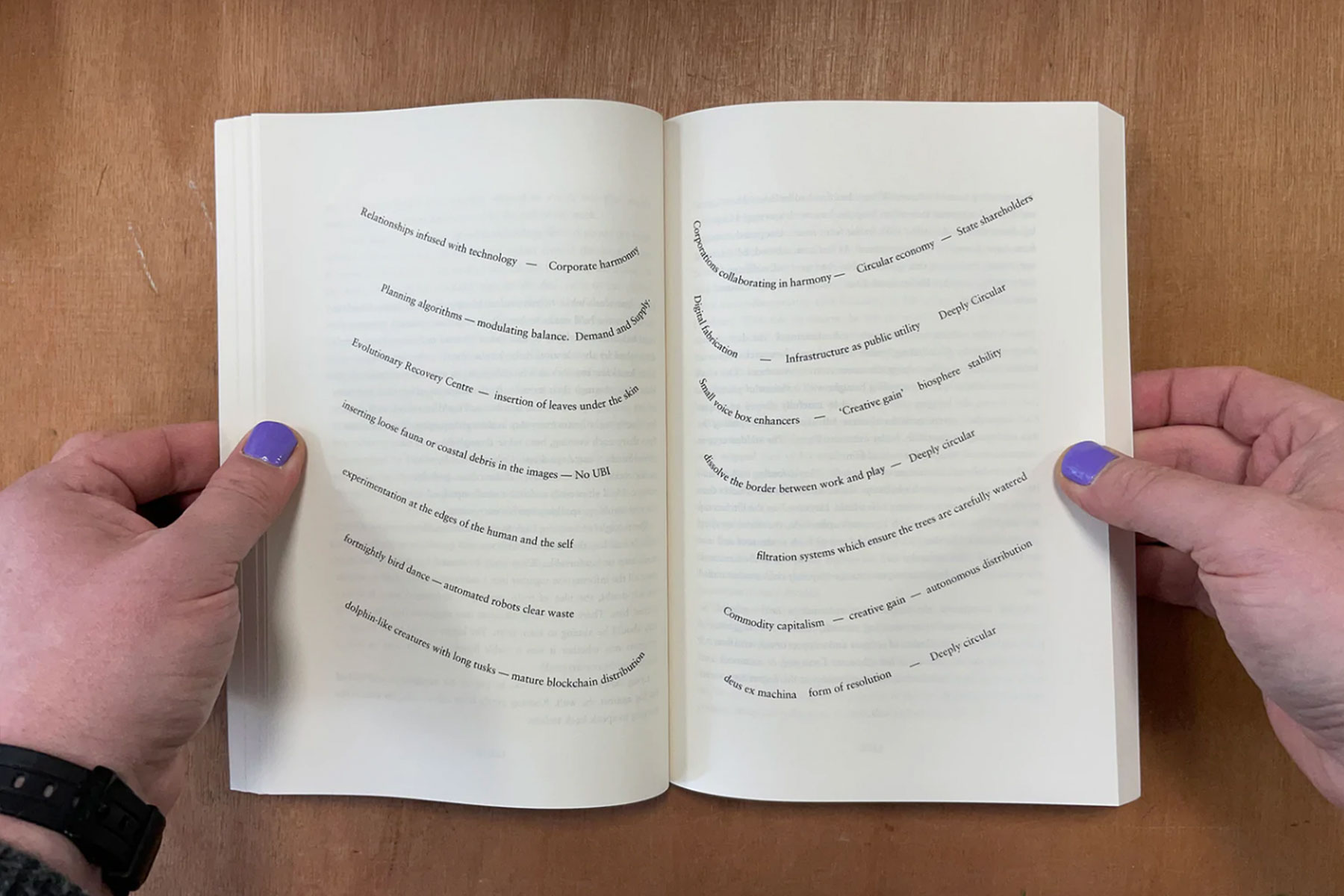



Type I
Novel Published by Dostoyevsky Wannabe, Manchester, 2021.
Praise for Type I:
Parnell’s simulation is uncanny in its relevance to our current slow-motion global disasters, and unnerving in the fully-rendered, high definition detail of this approaching dystopia. The world is both artificial and fully inhabited – it’s a hyper-reality rendered with restless intensity. The book constantly recalibrates – words dislodge on the page, narrative attunes to lucid details, picking out minute gestures and snippets of conversations from a sea of static fuzz. An exquisite fusion of criticism with narrative, polemic with speculation, Type I forecasts a fully-networked world collapsing under the strain of its own interconnection, imagining the planet as a motherboard, the city as circuitry, and the actor as electron zipping through its networks. This is a debut that’s truly thoughtful, refreshingly uncertain, and entirely human.
- Dan Power
Parnell paints future memories for the reader; he weaves optimism and grace into the horror of the climate crisis. In Type I, technology, art and grief intersect in a narrative that moves without trace between the real, the possible and the virtual, and at these junctures we are presented with positive worlds, one of which is on the edge of collapse. The synesthetic prose morphs into image, into concrete and delights in a wondrous surreality. There’s no better writer to tackle the psychotechnics of climate change and we, as readers, are ceaselessly committed to looking for patterns in this novel, which has a place for all the senses and teeters on the edges of perception.
- T. Person
Type I enacts a hyperreality, in which the effects of climate change are damaging our world, and technological advances are held up as the key innovative tools for alleviating ecological collapse. Merging poetics, visuals, fiction and essaying to create a vivid, multi-layered novel, Max Parnell’s debut offers up not only an immersive portrayal of two anthropologists taking part in a VR experiment, but also an in-depth commentary on the complexity of tech-human relations, and the dangers of optimisation. This novel allowed me to explore virtual realities whilst engaging with questions of vital importance in our contemporary moment. Its beautiful language and subtle unravelling of the narrative generate an eerily futuristic atmosphere, and a creeping sensation of apophenia.
- Kirsty Dunlop
Novel Published by Dostoyevsky Wannabe, Manchester, 2021.
Parnell’s simulation is uncanny in its relevance to our current slow-motion global disasters, and unnerving in the fully-rendered, high definition detail of this approaching dystopia. The world is both artificial and fully inhabited – it’s a hyper-reality rendered with restless intensity. The book constantly recalibrates – words dislodge on the page, narrative attunes to lucid details, picking out minute gestures and snippets of conversations from a sea of static fuzz. An exquisite fusion of criticism with narrative, polemic with speculation, Type I forecasts a fully-networked world collapsing under the strain of its own interconnection, imagining the planet as a motherboard, the city as circuitry, and the actor as electron zipping through its networks. This is a debut that’s truly thoughtful, refreshingly uncertain, and entirely human.
- Dan Power
Parnell paints future memories for the reader; he weaves optimism and grace into the horror of the climate crisis. In Type I, technology, art and grief intersect in a narrative that moves without trace between the real, the possible and the virtual, and at these junctures we are presented with positive worlds, one of which is on the edge of collapse. The synesthetic prose morphs into image, into concrete and delights in a wondrous surreality. There’s no better writer to tackle the psychotechnics of climate change and we, as readers, are ceaselessly committed to looking for patterns in this novel, which has a place for all the senses and teeters on the edges of perception.
- T. Person
Type I enacts a hyperreality, in which the effects of climate change are damaging our world, and technological advances are held up as the key innovative tools for alleviating ecological collapse. Merging poetics, visuals, fiction and essaying to create a vivid, multi-layered novel, Max Parnell’s debut offers up not only an immersive portrayal of two anthropologists taking part in a VR experiment, but also an in-depth commentary on the complexity of tech-human relations, and the dangers of optimisation. This novel allowed me to explore virtual realities whilst engaging with questions of vital importance in our contemporary moment. Its beautiful language and subtle unravelling of the narrative generate an eerily futuristic atmosphere, and a creeping sensation of apophenia.
- Kirsty Dunlop